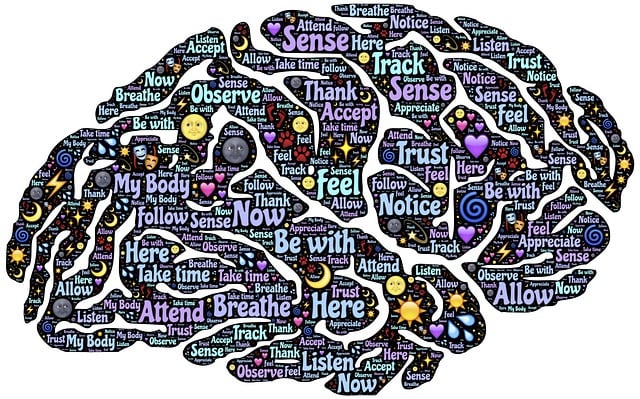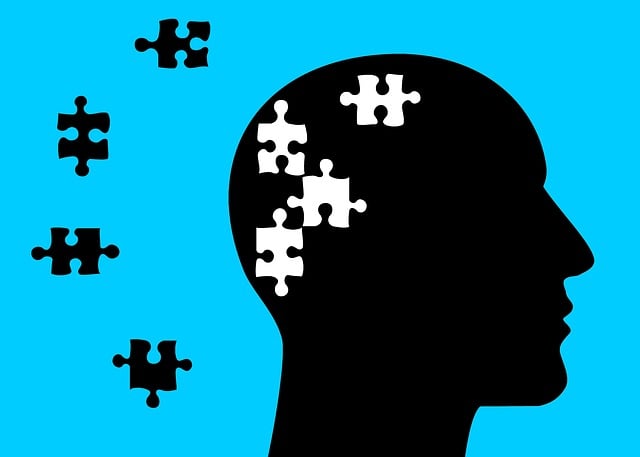Mental health issues, including depression, anxiety, and eating disorders, significantly impact daily life. Longmont Eating Disorders Therapy (LEDT) is crucial due to the co-occurrence of eating disorders with other mental health concerns. LEDT's evidence-based approach integrates emotional well-being promotion techniques, coping skills development, stress reduction methods, and tailored interventions for improved outcomes. The program combines individual therapy, group support, and educational workshops, fostering resilience and long-term recovery through holistic strategies like peer-led discussions and multimedia resources. Public awareness campaigns dispel myths and promote understanding, ensuring mental health education reaches diverse audiences effectively.
Mental health education programs play a pivotal role in fostering well-being and preventing disorders. This article explores strategies for designing comprehensive programs, focusing on understanding mental health issues and their profound impact on individuals and communities. We delve into creating effective curriculum structures, incorporating evidence-based practices, and implementing successful models like the Longmont Eating Disorders Therapy Program. By examining these components, we aim to equip educators and professionals with tools to make a lasting difference in mental health awareness and support.
- Understanding Mental Health Issues and Their Impact
- Designing an Effective Education Program
- Implementing and Evaluating the Longmont Eating Disorders Therapy Program
Understanding Mental Health Issues and Their Impact

Mental health issues encompass a wide range of disorders and conditions that significantly impact an individual’s emotional well-being and daily functioning. These include depression, anxiety, bipolar disorder, schizophrenia, and eating disorders, among others. Longmont Eating Disorders Therapy has become increasingly important in addressing these challenges, as eating disorders often co-occur with other mental health concerns, creating a complex web of symptoms that require specialized care.
Understanding the impact of mental health issues is crucial for designing effective programs. According to research, integrating Emotional Well-being Promotion Techniques and Coping Skills Development into therapeutic interventions can lead to better outcomes. By teaching individuals Stress Reduction Methods, we empower them to manage their symptoms and improve their overall quality of life. This holistic approach, which considers the interconnectedness of mental health and well-being, is vital in fostering resilience and recovery.
Designing an Effective Education Program

Designing an effective mental health education program involves careful consideration to ensure it resonates with the target audience. At Longmont Eating Disorders Therapy, we’ve found success by tailoring our approach to address specific needs, be it for students, professionals, or communities. A comprehensive strategy should incorporate various elements like interactive workshops, peer-led discussions, and multimedia resources to foster mental wellness. Public awareness campaigns development plays a pivotal role in this process, as they help dispel myths and promote understanding of issues like eating disorders and burnout prevention.
The curriculum must be adaptable, engaging, and evidence-based, incorporating real-life examples and case studies to make abstract concepts relatable. By integrating personal narratives and success stories, the program can inspire hope and provide a safe space for learning. Moreover, leveraging technology through online platforms can expand reach and accessibility, ensuring that education about mental health is readily available to those who need it most.
Implementing and Evaluating the Longmont Eating Disorders Therapy Program

The Longmont Eating Disorders Therapy (LEDT) Program is a comprehensive mental health education initiative designed to address and prevent eating disorders in young adults. This innovative program combines individual therapy, group support sessions, and educational workshops focused on fostering positive thinking and healthy self-care practices. By integrating evidence-based strategies with a holistic approach, LEDT aims to empower individuals to develop sustainable self-care routines for better mental health.
The evaluation of LEDT has shown promising results, with participants reporting significant improvements in their relationship with food, body image, and overall well-being. Regular check-ins and progress assessments enable therapists to tailor interventions, ensuring each individual receives personalized support. This tailored approach not only enhances the effectiveness of the program but also facilitates long-term recovery by equipping individuals with the tools to navigate challenges related to eating disorders and maintain healthy self-care routines.
The design of a successful mental health education program, as exemplified by the Longmont Eating Disorders Therapy Program, hinges on comprehensive understanding and tailored strategies. By integrating knowledge about mental health issues and their impact, educators can create engaging content that resonates with learners. Effective programs prioritize practical, evidence-based techniques, fostering an environment conducive to open discussions and personal growth. Implementation and evaluation are crucial steps, ensuring the program’s success and continuous improvement, ultimately benefiting individuals seeking support for eating disorders and other mental health challenges.














